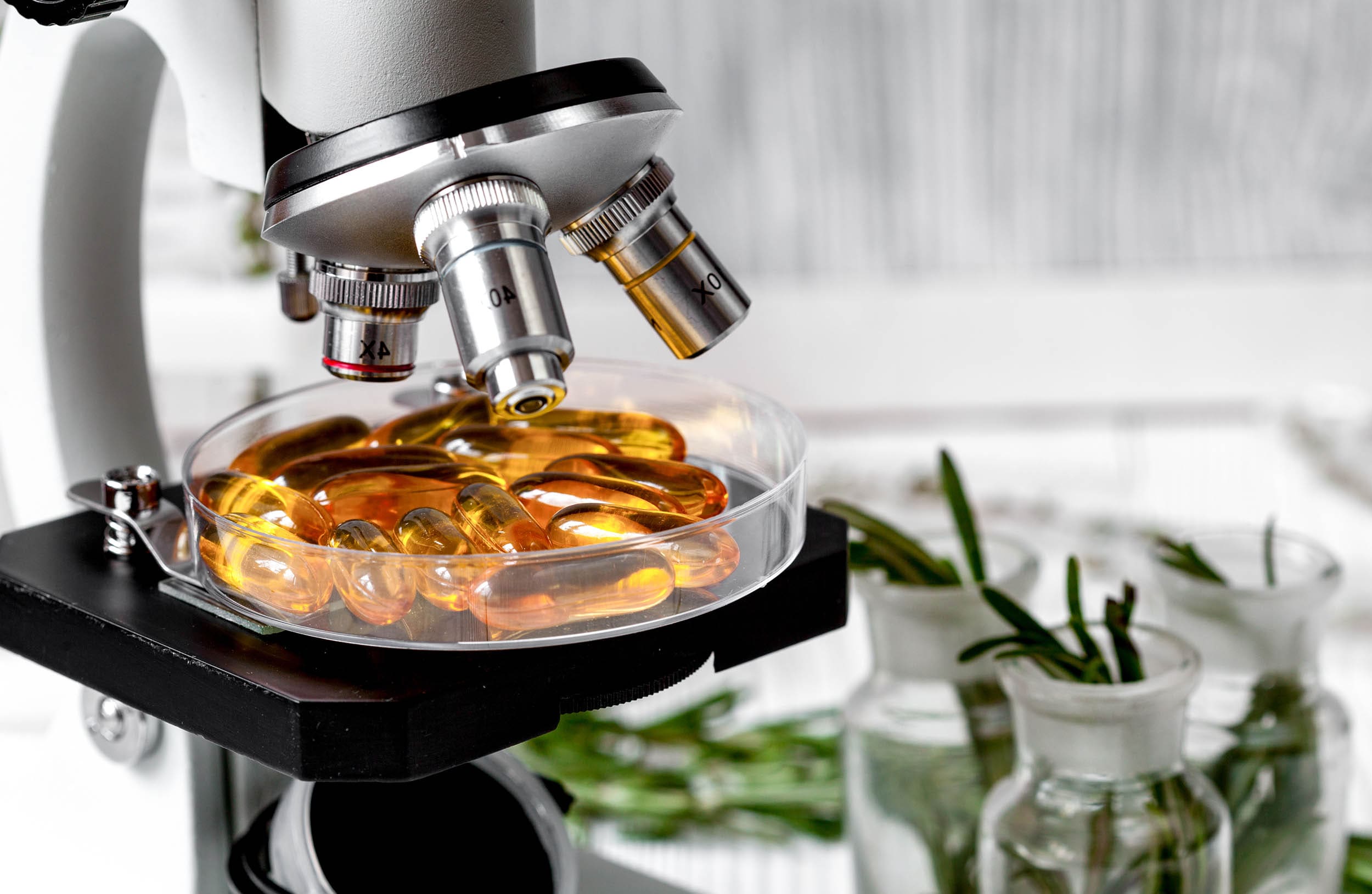
Get A Testing Quote
Recent Articles
Why Is Dietary Supplement Testing Necessary?
Dietary and nutritional supplements, especially liquid and capsule forms, are prone to contamination by harmful microorganisms. Manufacturing hygiene and GMP compliance are crucial, but routine testing for bacteria, yeast, mold, and pathogens is essential to ensure product safety.
Testing dietary supplements for bacteria, yeast, and mold is critical
Dietary and nutritional supplements are a growing category of products that play an important role in human health and well being. Whether they come in the form of a capsule, a powder, or a liquid, they must be tested to ensure they are generally free from microorganisms, and entirely free from bacteria, yeasts and molds that can cause harm.
Harmful microorganisms can grow in dietary supplements
It is easy to find examples of dietary supplements that were manufactured, sold, then later found to be contaminated with high levels of pathogenic microbes. FDA maintains a comprehensive database of recalls, and substantial recalls tend to make the news and be easy to find via internet searches.
Liquid dietary supplements tend to be contaminated most often
Dietary supplements can be liquids, powders, or capsules. Microorganisms tend to proliferate in wet environments, which means liquids and capsules are prone to contamination more than powders. When powders are contaminated, it’s usually a result of microorganisms added to the product as part of an ingredient or blend, not from microbial growth within the powder.
Liquid dietary supplements are prone to bacterial growth, so they may be formulated with preservatives to inhibit microorganisms from growing. The following two microbes are responsible for a great number of dietary supplement recalls:
- Burkholderia cepacia
- Pseudomonas aeruginosa
Like liquid dietary supplements, capsules – especially those containing liquids inside – can be perfect environments for microbial growth. Liquids inside capsules must also be preserved, or have a low enough water content microbes cannot proliferate.
The role of manufacturing hygiene and GMP compliance in dietary supplement contamination
Microbes can enter dietary supplements in a number of ways: They can hitch a ride on packaging, be present in manufacturing site water systems, blow in on the air, and be present in raw materials. They can also be introduced by human contact, be it dirty hands or uncovered coughs and sneezes. Insects and animals, which microbiologists call vectors, can also bring microorganisms into contact with dietary supplements.
The GMP regulations for dietary supplements are intended to ensure the cleanliness and accuracy of manufacturing. Facilities that develop suitable procedures for evaluation and release of incoming materials and ingredients, as well as robust cleaning and disinfection procedures tend to have less contamination events over time. Microorganisms are invisible, however, so testing is crucial.
Dietary supplement testing to prevent microbial contamination
Most manufacturers of nutritional and dietary supplements understand the importance of routine testing, not only of finished products, but also ingredients, packaging, and the environment in which dietary supplements are made.
A robust testing plan consists of evaluation of general levels of bacteria, yeast, and mold in every batch of product, as well as tests for specific pathogens, like E. coli and Salmonella.
The most common test for bacteria, yeast, and mold levels in dietary supplements is USP <2021>. The USP <2021> method provides a count for bacteria, yeast, and mold in dietary supplements, usually expressed as bacteria or fungi per per gram.
The test used by dietary supplement manufacturers to rule out pathogens is called USP <2022>. The USP <2022> test is a presence/absence test for pathogens in dietary supplements, designed to be very sensitive to their presence in a product, down to one cell per gram.
Using preservatives to prevent bacterial and fungal growth in dietary supplements
Dietary supplement manufacturing environments are non-sterile. That is, they are clean and hygienic, but not free from microorganisms altogether. Some products readily support the growth of microorganisms when water is present, so they must be preserved with antimicrobial preservatives. When a product is formulated with a preservative, it must be subjected to a preservative challenge test. At Microchem, we design preservative challenge tests for dietary supplements to include relevant food borne pathogens, like Salmonella and Listeria.
Share This Story!

